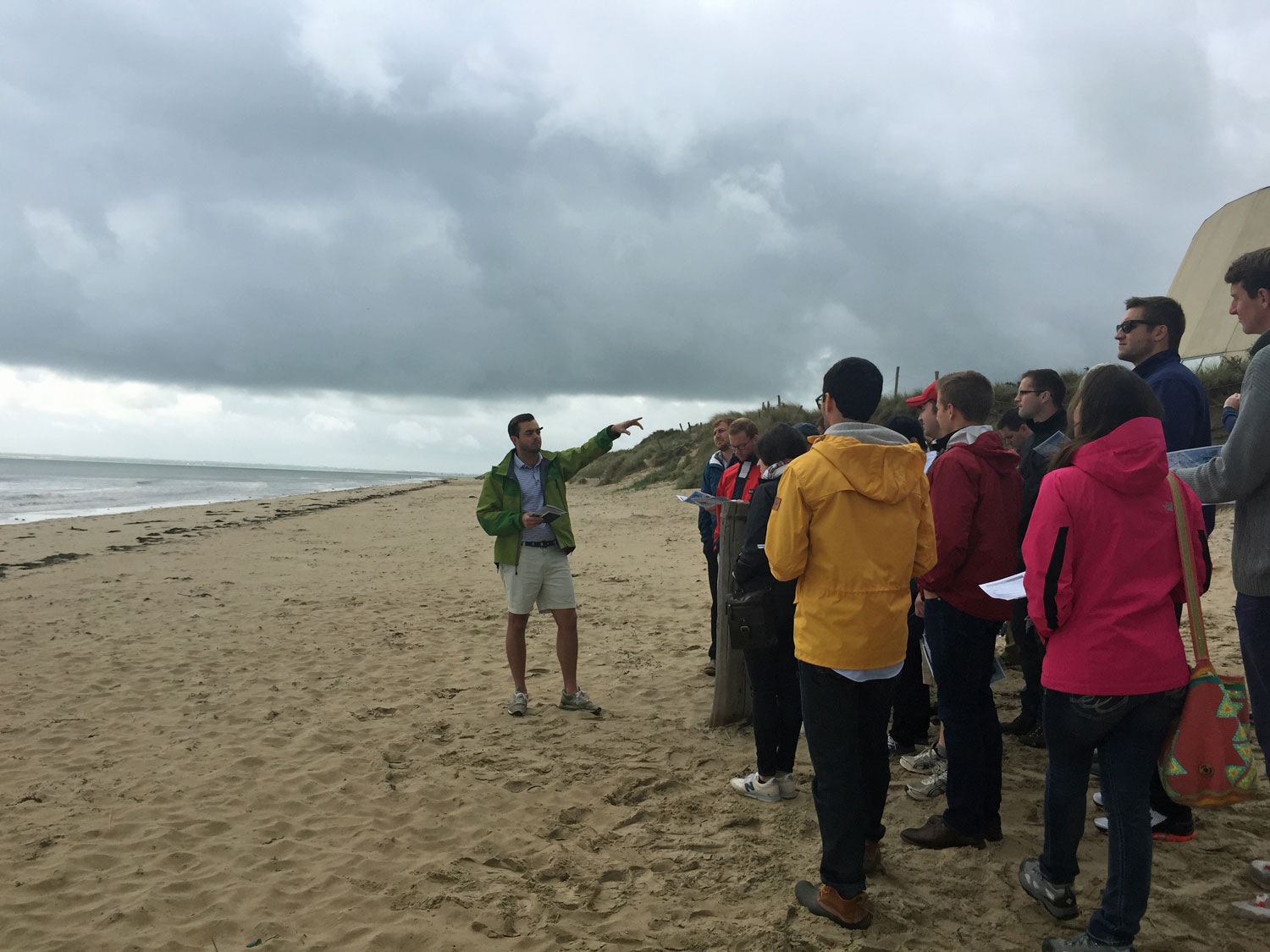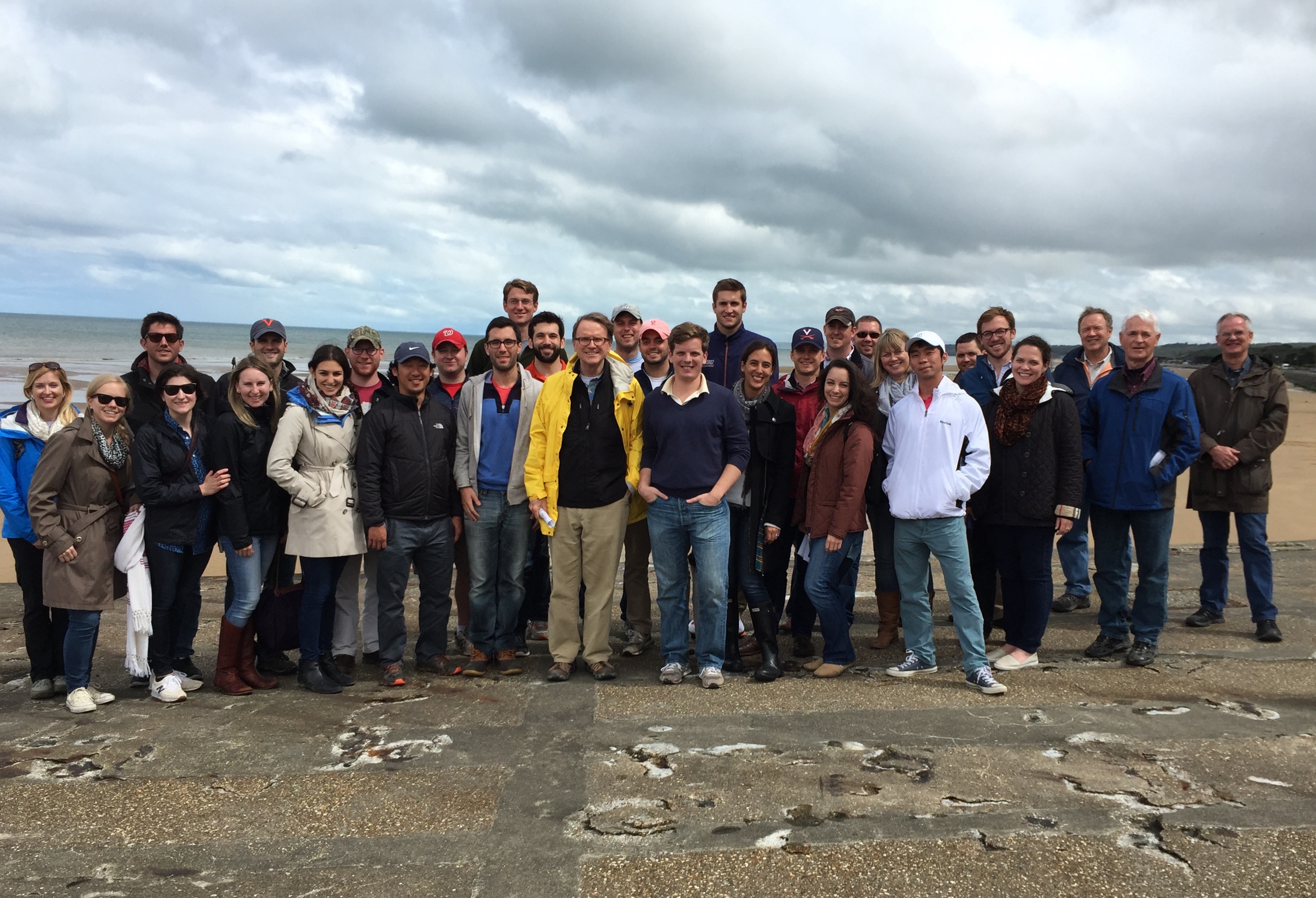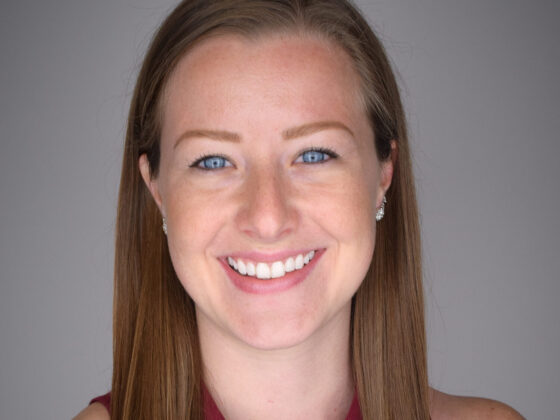Darden Student Mike Soriano (MBA ’16) shared some of his thoughts and key takeaways from Darden’s Global Leadership Ride, which took place this May.
The Global Leadership Ride was led by Gordon Rudd, Professor of Strategic Studies at the U.S. Marine Corps School of Advanced Warfighting, and Darden’s Dean, Robert F. Bruner. The program allowed students to apply broad leadership lessons from the Normandy invasion to their own reflection on planning and leading large, complex organizations, collaboration across units within an organization, and effective, cross-cultural leadership.
Q: What leadership lessons did you learn on the Normandy Leadership Ride that would have been hard, if not impossible, to learn in another setting?
A: There was one clear lesson that I took away from the trip that will remain with me for quite some time:
Leading from the front – Business school classes discuss many different types of leadership and management styles. Many discussions and cases afford students the opportunity to analyze the benefits of different leadership styles in different management roles. A common theme through a variety of stops during the Normandy program was the impactful leadership of middle-management within the Allied forces. As men received battlefield promotions on a daily basis, they took the initiative to lead their men from the front. Similar to business, middle managers usually have the majority of staff to manage which requires a refined ability to create followership among your team. A leader’s willingness to lead a team through a stressful situation and take-on difficult tasks while backing his/her employees accelerations the degree of followership for a leader. We saw this on Utah Beach with Theodore Roosevelt, during operation cobra, and at the Mortain Counterattack.
Q: The two faculty leaders for this program were Gordon Rudd, Professor of Strategic Studies, U.S. Marine Corps School of Advanced Warfighting and Adjunct Lecturer, and Robert F. Bruner, Dean of the Darden School of Business. How did these two leaders bring their own perspectives to the program’s content?
A: Professor Rudd brought a great deal of historical knowledge and military strategy insight to each and every stop. He is a master of his field and is able to communicate to a novice group of students analyzing military leadership the tactile actions taken at each site.
Dean Bruner contributed greatly to the educational value of our time in Normandy. He was able to draw very specific business lessons from each and every stop that we made. For example, he addressed macro concepts like the advantage of high ground and importance of positioning yourself in a growing industry.
Q: In what ways were you surprised or enlightened about the invasion’s application to modern business challenges?
A: I think one of the biggest ways that I was enlightened about the application of the invasion to modern business is the importance of creativity in both environments. Generally speaking, there are countless examples of units that we discussed during our travels that ended up in a location very different from where they had planned. Their will to win and creativity ultimately helped them succeed. Whether it was the paratroops in Operation Cobra, Theodore Roosevelt’s famous landing on Utah beach, or trying to engineer a way for tanks to float, creativity and the ability to pivot in any situation was at the forefront of the Allied forces- much like modern business creativity and the ability to pivot in changing environments are two challenges that business leaders are faced with on a daily basis.






